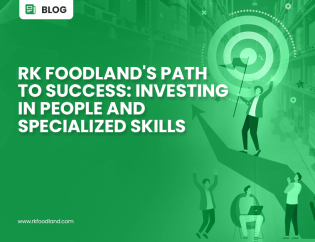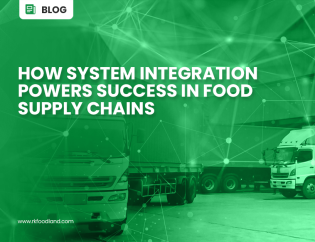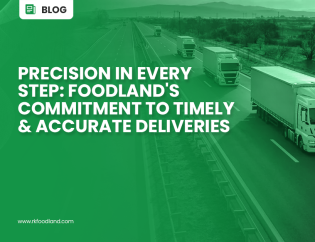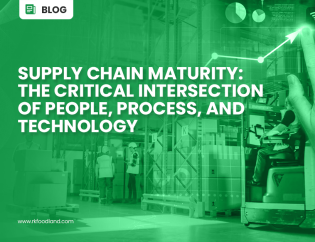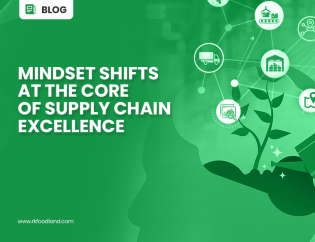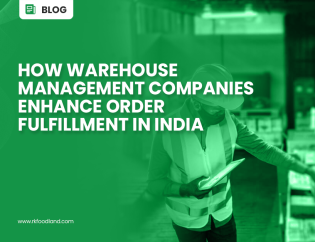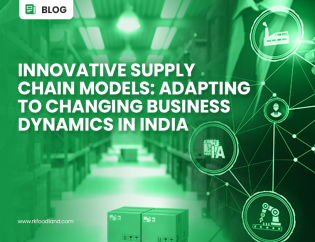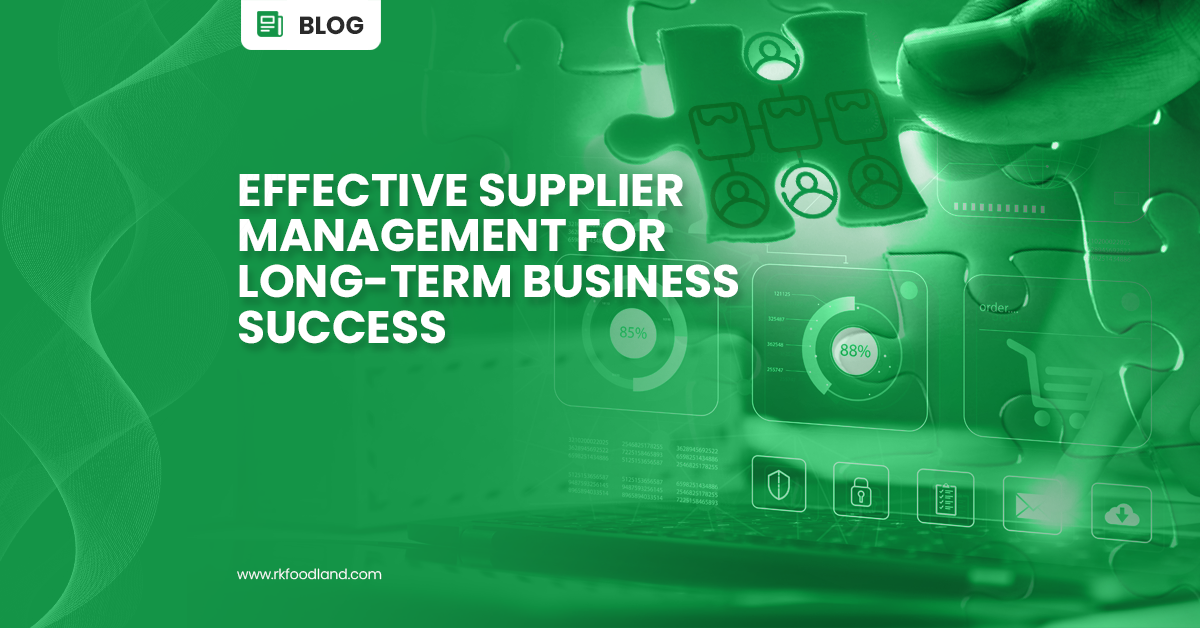
[Avg. Read Time < 5 mins]
Navigating the intricacies of the food industry is a journey that demands a strategic approach to supplier management. For supply chain professionals, it can be compared to steering a ship through turbulent waters. Today’s market is not only fiercely competitive but is also continually shaped by evolving consumer preferences, ever-changing regulatory requirements, and unforeseen supply chain uncertainties. To succeed, mastering supplier management is essential. By forging and maintaining a reliable network of suppliers, food businesses can ensure consistent quality, mitigate supply risks, and quickly adapt to changes. This positions them strategically for sustainable growth amidst a challenging landscape.
Ripple Effect of Inadequate Supplier Management on Business Performance
In the dynamic ecosystem of the food industry, maintaining quality and safety standards is of paramount importance due to their direct impact on human health. Effective supplier management is a fundamental tool in achieving these standards and building a string foundation for a quality-driven system. It’s concerning that, as per a report, the need for continuous supply has forced 73% of businesses to bypass crucial areas such as supplier due diligence, with 76% taking risks that could expose them to unforeseen hazards. This lack of due diligence and mismanagement can lead to inconsistent quality and safety in products, causing customer dissatisfaction, supply chain disruptions, and difficulties in budgeting due to price fluctuations. It may also result in non-compliance with industry standards and legal regulations, leading to potential fines and legal troubles. Furthermore, poor supplier management often results in a lack of transparency and traceability in supplier operations, making the early identification and resolution of issues particularly challenging.
Effective Supplier Selection: A Pillar for Success
Effective supplier management is vital for achieving long-term success. It begins with a robust supplier evaluation process. By insisting that suppliers meet strict quality, reliability, and compliance criteria, businesses can establish a solid foundation. Supplier development programs are key to enhancing supplier capabilities and aligning suppliers with the company’s objectives through targeted training and resources. This alignment is further strengthened by clear communication, which ensures real-time coordination and prompt resolution of any issues. Crucially, supplier performance measurement is an integral part of this process, keeping track of key performance indicators (KPIs) and aligning them with strategies to continually refine supplier operations.

Harnessing Technology for Streamlined Supplier Relationships
Embracing the power of technology is paramount in today’s evolving business landscape. The food industry, characterized by its intricate network of supplier interactions, stands to gain significantly from digitization. As the backbone of effective supplier management, technological solutions have proven to be game-changers. These digital tools optimize various facets of the supply chain, resulting in increased efficiency, and thus, improved business outcomes. For instance, the implementation of such software has shown to significantly decrease the number of uncompleted tasks, increase activity completion rates, and decrease associated risk. This advancement is achieved by providing an unprecedented level of visibility into operations, enabling stakeholders to act proactively, mitigating risks, and identifying potential opportunities for process enhancement. Moreover, many companies report that information sharing with suppliers is among their most time-consuming tasks. Here again, digital platforms prove their worth by ensuring a smoother and faster flow of information, which ultimately leads to enhanced performance and better supplier relationships. In essence, technology is not just an enabler but a pivotal element in honing supplier relationships and strengthening the food business. Its strategic deployment allows for the untangling of the complex web of supplier interactions, breathing efficiency and transparency into operations, thus fortifying the industry’s resilience and adaptability.
To summarize, supplier management success in the dynamic food industry is hinged on three pillars: establishing uncompromising quality and safety standards, effective supplier selection and management, and leveraging technological advancements like SupplyXPro. These elements not only strengthen operational efficiency but act as catalysts for fostering supply resilience, and long-term success. If you’re a food business or supply chain professional keen on bolstering your supplier management strategy and taking your operations to the next level, we encourage you to connect with our experts today. Gain a fresh perspective on supplier management, and experience first-hand how SupplyXPro can revolutionize your business processes.
Equip your enterprise with the supply side insights and tools it needs to navigate and excel in today’s complex food industry.
Related Content | Foodland’s Resources
Taking supplier collaboration to the next level
Why Supplier Diversification is a Solution


